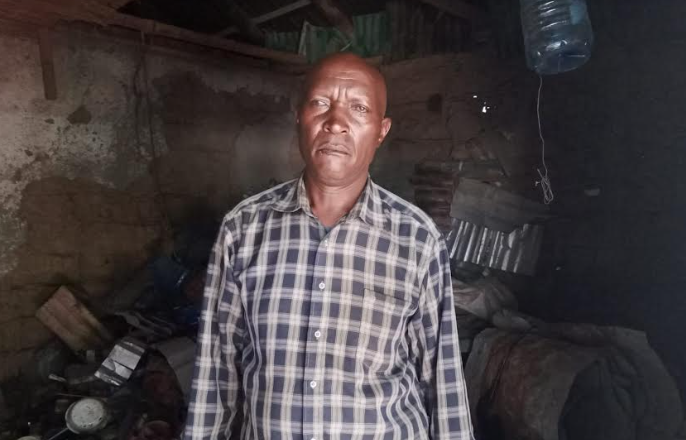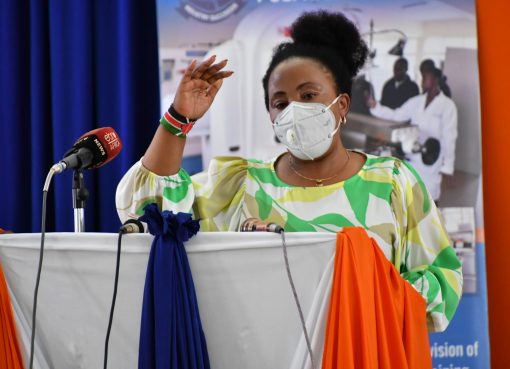Nicholas Wambua, 52, is minting millions from the scrap metal business after quitting driving and farming jobs in 2019.
After completing his O’levels, Wambua, who hails from Machakos County, says he worked as a truck driver while at the same time farming different varieties of cereals.
However, with time, he started developing eyesight problems that forced him to drop the driving job to concentrate on farming.
The farming business was also not promising due to unpredictable weather that saw him incur huge losses, forcing him to relocate from Machakos to Narok County to look for greener pastures.
“When I arrived in Narok town, I started a cereal shop, where I would order cereals from the Ukambani region. The business was thriving, as I could comfortably pay for my small rented house and provide for my family,” he says.
Nevertheless, an ambitious Wambua was not ready to settle for less; he was determined to earn a huge income that would give his family a decent life.
In 2019, he says, a friend introduced him to the scrap metal business, which made him quit selling cereals to deal with scrap metal.
But where does Wambua get the used scrap metal to sell? He says he began by visiting the construction sites where someone was upgrading his iron sheets. He would buy the old iron sheets at a throwaway price and later sell them as scrap metal.
Slowly, people began knowing of his business and started selling him used iron sheets and other scrap metal.
“I became so famous in the industry that many people would come to me when they wanted to dispose any scrap metal,” he says.
He explains that he purchases one kilogram of scrap metal for Sh. 25 and sells it to the metal industries in Nairobi for Sh. 30. This gives him Sh. 5 for every kilogram of scrap metal.
“Our market is usually in Kitengela and Uganda. In a month, I can sell over 20,000 kilograms of scrap metal, which gives me a return of not less than Sh. 100,000,” he reveals.
However, Wambua discloses that not all scrap metals are of good quality; hence, he has to be very selective when buying scrap metal from residents.
Again, he says, he has to be careful that his customers do not sell him stolen goods that could easily land him on the wrong side of the law.
“People have become too cunning. Sometimes they vandalize equipment put up by the water companies, Kenya Power and Lighting Company, and sign boards put along the road where they come to sell scrap metal to us. That is why we have to be very keen when buying scrap metal from people,” he said.
Like any other business, Wambua says he has had its ups and downs. He recalls January to March 2022, when former President Uhuru Kenyatta banned scrap metal businesses over increased vandalism in the country.
“This was the greatest challenge in my business. I had to seek alternatives like selling plastic bottles to earn a living,” he recalls.
He also recalls being arrested for dealing with stolen goods when one of his customers sold him stolen metals.
“I was taken to court and fined heavily for dealing with stolen goods. From that time on, I was careful when buying any goods from members of the public,” he adds.
With the profit he makes, Wambua says he is able to provide for his two wives and six children, who totally depend on the business.
He has also bought a plot in Narok town, which he intends to develop in the near future so as to increase his income.
Wambua works alongside one of his wives and an employee in his scrap metal business premises, which are located opposite Kandas Ground along the Nyawira road.
By Ann Salaton




